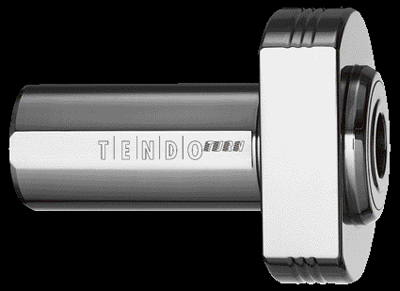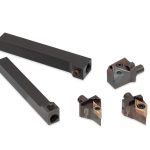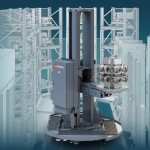Tendo-Tech Toolholders
Tendo-Tech Toolholders
The Tendo-Tech is a line of special toolholders offered as standard from Schunk.

The Tendo-Tech is a line of special toolholders offered as standard from Schunk. These toolholders have technical features incorporated into the holder or are designed for a niche market or application, and are manufactured from the same high-grade tool steel as the company's Platinum line.
The TENDO-ES is short and rigid and the tool shank is clamped inside the machine spindle taper. It is excellent for low clearance situations and is the perfect combination with the SVL extension, which is quick and easy to change.
The TENDO-TURN is easy to change in turret mounted and CNC lathe applications. It is excellent for through-coolant drills and has added vibration dampening. The TENDO-RLA offers easy and accurate tool length presetting.
The TENDO-ZERO is the toolholder to use for ultimate control of runout for reaming and precision drilling.
All of the Tendo-Tech toolholders offer direct clamping diameters for the best precision, have a run-out of 0.003mm or less, have superior vibration dampening, and are repairable. They are available in CAT 40 and CAT 50 tapers and are sleeveable for added flexibility.





